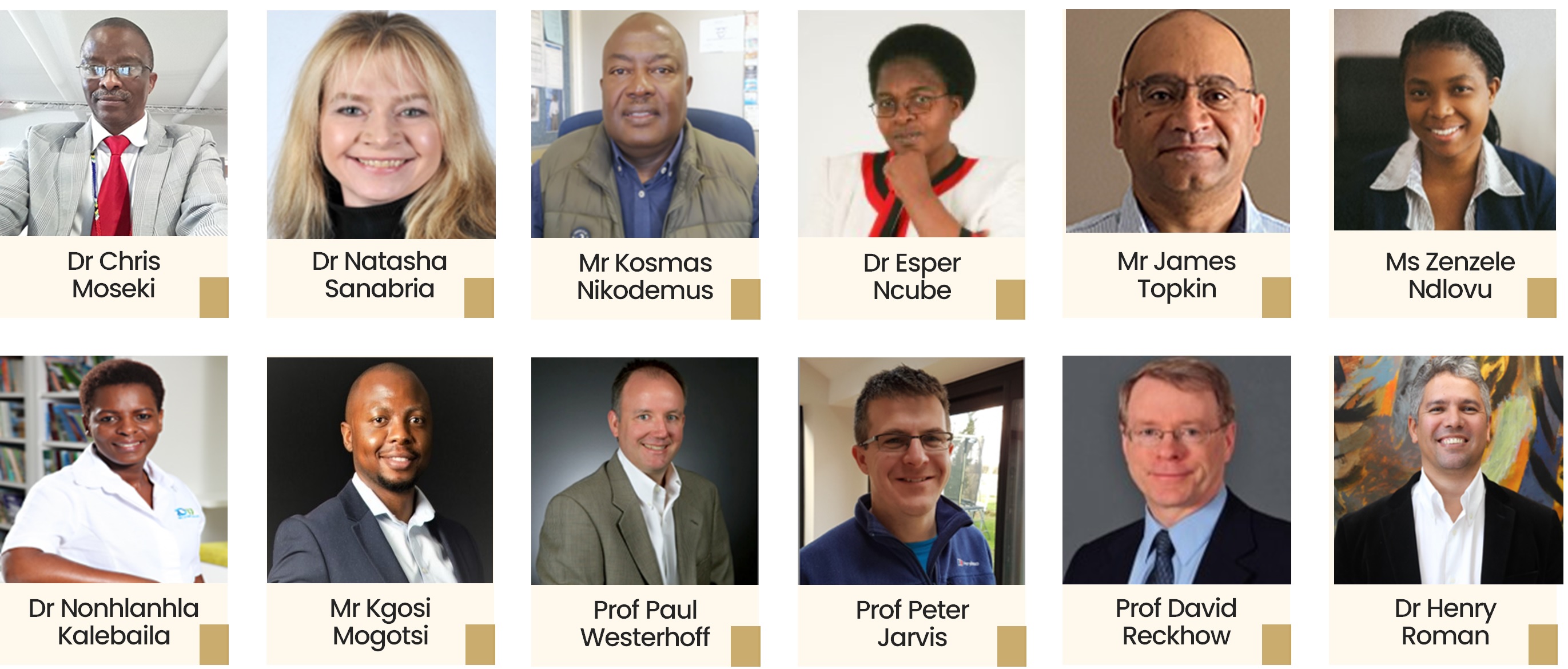
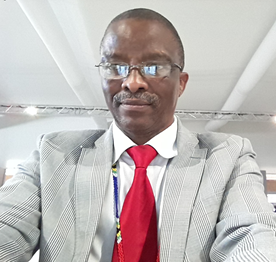
Dr Chris Moseki
Dr Chris Moseki
Specialist Scientist: Climate Change Analysis
SA Department of Water and Sanitation
Department of Water and Sanitation
Dr Chris Moseki is currently a climate change specialist scientist at the Department of Water and Sanitation. He has more than 20 years of experience in groundwater development and water resources management. Dr Moseki was a member of South Africa’s climate change negotiating team under the United Nations Framework Convention on Climate Change for more than 10 years. He also co-chaired the Research and Systematic Observation agenda item under the UNFCCC from 2012 to 2016. He currently chairs the Advisory Panel Committee for the Expanded Freshwater and Terrestrial Environmental Observation Network (EFTEON) under SAEON. Over the years, Dr Moseki published a number of papers on water and climate with a focus on southern Africa, collaboratively with colleagues at various African institutions coordinated by UNEP. His latest publication is a chapter of a book entitled “Climate Change and Water Resources in Africa: Perspectives and Solutions Towards an Imminent Water Crisis,” that was published by Springer Nature Switzerland in 2021.
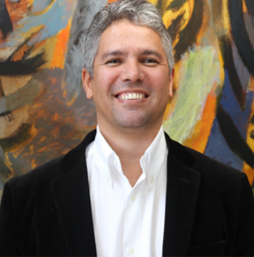
Dr Henry Roman
Dr Henry Roman
Director: Environmental Services and Technologies
Department of Science and Technology
Henry Roman holds a PhD in Biotechnology from Rhodes University, South Africa, specialising in the bioremediation of acid mine drainage. He has 16 years’ experience in the National System of Innovation in various roles with 10 of these at the Department of Science and Innovation (DSI). Henry has led the development of two Roadmaps related to the Green Economy ambitions of South Africa, to guide research, development and innovation in the water and waste sectors. He also has oversight of the WADER platform implemented by the WRC. He is a member of the Advisory Panel for Sustainable Seas Trust, a Steering Committee Member of the Partnership for Action on Green Economy (PAGE-SA) as well as the Switch Africa Programme in South Africa. He is currently working on developing an STI Framework for Circular Economy.

Prof David Reckhow
Prof David Reckhow
Research Professor – Civil & Environmental Engineering
University of Massachusetts
David Reckhow has been on the Faculty of the University of Massachusetts since 1985 and is currently research professor of Civil & Environmental Engineering. His teaching and research areas include general aquatic chemistry, chemical oxidation of organic compounds in water, coagulation processes, removal of chemical pollutants in water, and aquatic organic matter in natural systems and drinking waters. Dave has recently served as Director of an EPA drinking water center, the Water Innovation Network for Sustainable Small Systems (WINSSS) and is Principal Investigator for many projects on natural organic matter, and anthropogenic contaminants in water, including PFAS and disinfection by-products.

Mr Kgosi Mogotsi
Mr Kgosi Mogotsi
Regional Corporate Affairs Director
AB-inbev
Kgosi Mogotsi is responsible for ensuring that the licenses to trade for the liquor industry is adhered to and protected as the regional corporate affairs director for AB-inbev. With over 14 years in private sector, Kgosi has experience in Strategy development, Leading teams, stakeholder engagement and industry collaboration. Kgosi also serves as a board member for the Gauteng enterprise propeller (GEP) as well as the south African business coalition on health and aids(SABCOHA) . He has obtained a lean 6 sigma yellow belt certificate, post graduate diploma in management and working towards his MBA.
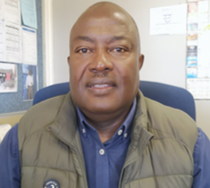
Mr Kosmas Nikodemus
Mr Kosmas Nikodemus
Chief Scientist: Department of Infrastructure, Water and Technical Services
City of Windhoek (Namibia)
Kosmas Nikodemus is the Chief Scientist of the Scientific Services Division in the Department of Infrastructure, Water and Technical Services, City of Windhoek, Namibia. In his role as Chief Scientist, he is responsible for planning, coordinating and implementation of the City’s water quality monitoring systems, while maintaining collaborations with various stakeholders on water reuse, treatment and water quality issues.Kosmas has contributed greatly to the understanding and improvements of water quality issues pertaining to direct potable reuse schemes. Throughout his carrier he has been active in water management activities in Namibia. He has served on various committees dealing with water and wastewater infrastructure development for the City. He is currently serving on the Subcommittee of City’s Technical Committee of Experts on Water Supply Security.

Dr Esper Ncube
Dr Esper Ncube
Manager: Process Technology
Randwater, South Africa
Dr Ncube is currently the Manager Process Technology - VG at Randwater, South Africa. Dr Ncube worked for the former Department of Water Affairs and Forestry (DWAF) as assistant and Deputy Director Hydrology for 5 years managing the Analytical Services from 1997 to 2000 mainly the chemical laboratories, monitoring and assessment unit from 2000 to 2002 mainly the design and management of water quality monitoring programmes before joining Rand Water in 2002 as Head of Water Quality and Environmental Projects. After 4 years in the Water Quality Services Department of Rand Water Scientific Services Division she took up the position of Water Quality Specialist-Bulk Distribution responsible for water quality assurance. During this time she was exposed to a number of water quality management responsibilities including Water Safety Planning. After 5 years she joined the Process Technology Department as its Manager. This unit is accountable for the treatment technology and conducts applied research and development for process investigations and optimization.
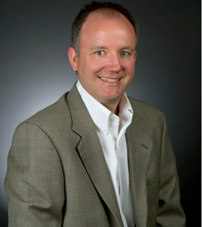
Prof Paul Westerhoff, PhD, PE, BCEE
Prof Paul Westerhoff, PhD, PE, BCEE
Deputy Director (NSF NanoSystems ERC – NEWT)
Arizonia State University, USA
Dr. Paul Westerhoff is a Regents Professor in the School of Sustainable Engineering and the Built Environment at Arizona State University and the Fulton Chair of Environmental Engineering. He joined ASU in 1995 and after serving as the Civil and Environmental Engineering Department Chair he was the Founding Director for the School of Sustainable Engineering and the Built Environment. Since then he has served as an Associate Dean of Research in Engineering, ASU Vice Provost for Academic Programming, and Vice Dean for Research and Innovation in Engineering. He is the Deputy Director of a National Science Foundation Nanosystems Engineering Research Center for Nanotechnology Enabled Water Treatment (newtcenter.org) . He has over 320 journal publications and multiple patents on his research related to fate of nanomaterials in water, developing novel technologies for water and reuse treatment, and understanding reactions related to the fate of pollutants during treatment or in natural systems with a focus on oxo-anions, natural organic matter and micropollutants. He is the recipient of several awards including the recipient of the 2020 A.P. Black award from the American Water Works Association, 2019 NWRI Clarke Prize for excellence in the fields of water science and technology, 2017 Sustainable Nanotechnology Organization Annual Achievement Award, ASU Outstanding Doctoral Mentor for 2015, 2013 ARCADIS/AEESP Frontier in Research Award, and 2006 Paul L. Busch Award.
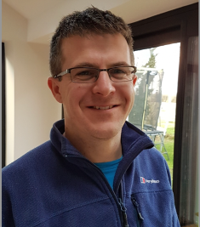
Prof Peter Jarvis
Prof Peter Jarvis
Professor of Water Science & Technology
Cranfield Water Science Institute, UK
Professor Peter Jarvis has been working at Cranfield in the Cranfield Water Science Institute since May 2005. Having obtained his MSc in Water and Wastewater Engineering (2001) and PhD in Water Treatment from Cranfield (2004), he worked at Anglian Water in industrial research and development from 2004-2005. Prior to this he studied for a BSc (Honours) in Marine Biology at the University of Liverpool (1995-1998). At Cranfield, Prof Jarvis leads the Drinking Water Treatment research group within the Cranfield Water Science Institute. His current research interests centre on using new and existing technologies for advanced removal of natural organic matter and a range of other contaminants from water sources used for drinking. He is actively leading research in: Natural organic matter removal using ion-exchange, novel coagulants and adsorption processes; Lead in drinking water; Piloting new flowsheets for the next generation of drinking water treatment works; Making treatment processes more robust and efficient; and Small-scale water treatment options. He currently leads a national programme of PhD training in an EPSRC funded Centre for Doctoral Training in Water Infrastructure and Resilience (WIRe), as well as a national network of academics and utility researchers (the UK Potable Water Network). He is an Editor of the journal Water Research and is the Editor in Chief of Environmental Technology journal.

Ms Zenzele Ndlovu
Ms Zenzele Ndlovu
Project Manager – Technology
South African Medical Research Council
Ms Zenzele Ndlovu holds a master’s degree in Chemical Engineering from the Cape Peninsula University of Technology and is currently on her final year of PhD in Chemical Engineering with a focus on waste management. She worked at the Technology Transfer Office at the University of the Western Cape, as a Technology Transfer Officer. Prior to that, she participated in a National Commercialization Program hosted by the Technology Innovation Agency, a state funding agency, where she spent 2 years acquiring knowledge on intellectual property and commercialization. During this program, she was seconded to various stakeholders in the national system of Innovation, including Savant Technology Incubator, Brian Bacon IP Attorneys and Knife Capital, a Venture Capital firm. She joined the SAMRC in July 2018 as a Project Manager, where she is involved in the Technology Transfer Office, responsible for managing SAMRC’s IP, including awareness raising, IPR Act requirements, identifying new IP and Liaise with strategic partners. She also plays a vital role in the SAMRC-PATH Global Health Innovation Accelerator and manages grants within the GIPD HIV Program. She has been the lead in several SAMRC initiatives – including the SAMRC-TIA Seed Fund and the MeDDIC program.

Dr Nonhlanhla Kalebaila
Dr Nonhlanhla Kalebaila
Research Manager: Water Research Commission
Short Bio
Dr Nonhlanhla Kalebaila is a Research Manager: Drinking water quality and treatment within Key Strategic Area (KSA) 3 at the Water Research Commission (WRC). This portfolio covers research on drinking water supply, treatment technology, drinking water quality and water distribution. Dr Kalebaila possesses a PhD in Chemical Technology, specialising in Water Utilisation (University of Pretoria).
LinkedIn profile: https://www.linkedin.com/in/nonhlanhla-kalebaila-67b6874/
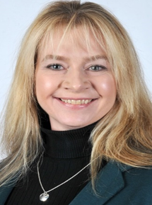
Dr Natasha Sanabria
Dr Natasha Sanabria
Head of Department - Toxicology and Biochemistry
National Institute for Occupational Health
Dr Sanabria has experience specialising in biochemical investigations and genetic analyses of disease-related states, e.g. gene expression during stressed conditions, “Self/non-self” recognition events, innate immunity, cellular signal perception/transduction, as well as the assessment of nanomaterial toxicity using molecular biology-based techniques. She completed a Biochemistry MSc degree, which was awarded cum laude in 2003 (RAU). She received the NRF Prestigious award, discovered a new gene (GenBank accession number GU196248) and obtained a PhD in 2009 (UJ). Thereafter, she received the NRF Innovation Fellowship to complete Postdoctoral studies in 2011, with training at Cold Spring Harbour Laboratory (New York, USA). Dr Sanabria worked as a lecturer at UJ, the Biochemistry Honours-course Coordinator, as well as the QC manager on an international patent for the Metacatalysis/“Metals in medicine” units. She then moved to the NIOH/NHLS in 2013 as the Toxico-genomics Lab Manager, attended nanoparticle-specific training (Boston, USA) and held an NHLS Research Trust Development Grant (2015-2017). Dr Sanabria also served as the Coordinator for the WHO Exposure Assessment to nanoparticles Workshop (2013), NanOEH conference Organizing Committee Member (2015), higher-degrees co-supervisor, as well as a Mentor for DST/NRF Industry Interns (2015/2016). She has served as a reviewer for international journals, the NHLS Research Trust and the NRF. She has contributed to the WHO guidelines on protecting workers from potential risks of manufactured nanomaterials (2017), based on a report submitted to the WHO (2015), as well as a baseline study submitted to DST (2014). Dr Sanabria then pursued a full-time MSc in Bioinformatics and Computational Molecular Biology in 2017, which was awarded cum laude by RU, and re-joined NIOH as the Head of Department for Toxicology and Biochemistry in March 2018. She is currently Chair of the Research Committee at NIOH and a member of the international NanoSolveIT Consortium for in silico Integrated Approach to Testing and Assessment for the environmental health and safety of Nanomaterials.
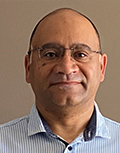
Mr James Topkin
Mr James Topkin
Research Manager at Ekurhuleni Water Care Company
Started his career as an analytical chemist in the South African Navy Laboratory, moved on as a scientist at ESKOM and then later to senior scientist at Necsa. He has a BSc at UOVS, Honours at Stellenbosch University and MSc in analytical chemistry from Wits. He has been involved in utilising Nanotechnology since 2000, being part of a team looking at electrospinning for Eskom. This work continued with sorption of waste products into cement products at Necsa. He has a passion for integrating different fields of science with the aim of providing solutions. Integration of cross boundary disciplines are based on my fortunate exposure to these exiting, different working environments. He is currently busy with my PhD studies, utilizing microfiltration in a polishing application to improve wastewater effluent. The utilization of byproducts from our wastewater industry offers huge future growth potential especially when utilizing Nanotechnology to add value to nuisance-like waste materials.Last modified: 2023/10/18